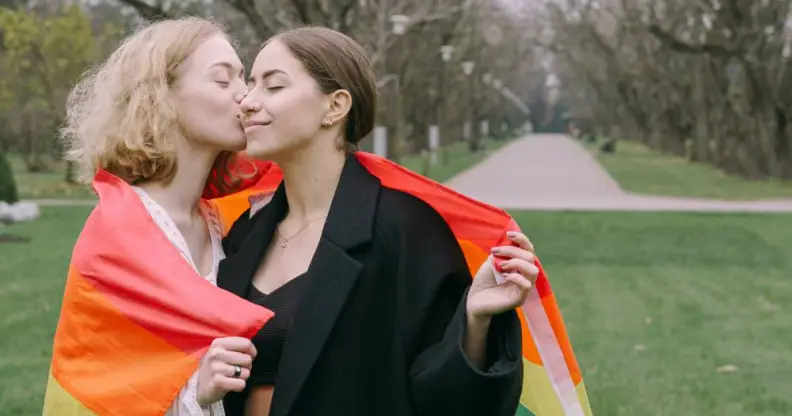Top court rules Russia’s degrading same-sex marriage ban is a human rights violation

The European Court of Human Rights ruled Russia’s ban on same-sex unions is a human rights violation. The court said Russia must create a “legal framework” recognising same-sex relationships. (Pexels)
Europe’s top court has ruled that Russia’s ban on same-sex unions is a human rights violation and compelled the country to create a “legal framework” to acknowledge same-sex couples.
The ruling comes nearly a decade after three same-sex couples lodged complaints with the European Court of Human Rights. The couples all had their applications to be married rejected by their local registry offices in Russia.
The court ruled Tuesday (13 July) that Russia had an obligation under Article 8 of the European Convention on Human Rights to “ensure respect for the applicants’ private and family life” by ensuring same-sex couples have their relationships “acknowledged and protected under domestic law”.
The court admitted Article 8 does not “explicitly impose” on Council of Europe members an “obligation to formally acknowledge” same-sex marriages.
However, it said there needed to be a “fair balance between the interests of same-sex couples and the community as a whole”.
“There was also a positive obligation to set up a legal framework guaranteeing the effective enjoyment of the rights enshrined in article 8,” the court said.
The European Court of Human Rights also rejected the government’s argument that the “majority of Russians disapprove of same-sex unions”. The government argued that “interests of the community as a whole” potentially justified the “lack of opportunity” for same-sex couples to legally recognise their relationships.
The court however said that “access to rights for a minority could not be dependent on the acceptance of the majority”. It added that giving same-sex couples formal acknowledgment of their relationship would not be in conflict with the “‘traditional understanding of marriage’ prevailing in Russia”.
Russia unlikely to listen to European court on same-sex marriage
The European Court of Human Rights is the court of law of the Council of Europe and was created to ensure member states respect the rights set out in the European Convention on Human Rights.
Judgements by the European Court of Human Rights are binding, and the 47 member states are meant to comply with rulings by the court.
But Russia has often taken issue with rulings against it and has a troubling history of not respecting or even ignoring the court’s judgments. The court found the country in violation of the European Convention on Human Rights at least 173 times in 2020.
Russia approved a bill last year that would give national legislation precedence over international treaties and rulings from international bodies.
Amnesty International said the amendments, which were signed into law by president Vladimir Putin in March 2020, state that “decisions of interstate bodies” shall not be “subject to enforcement” in Russia if they conflict with the country’s constitution.
Marie Struthers, Amnesty International’s Eastern Europe and Central Asia director, said the constitutional amendments are an “attempt by the Russian authorities to empower themselves to override” European Court of Human Rights’ rulings.
“This is a blatant affront to human rights and the rule of law, and would rob many in Russia of a crucial avenue for justice,” Struthers added.
It seems unlikely that Russia will abide by this latest ruling, especially as LGBT+ people face open hostility in the country.
A same-sex family said they faced relentless homophobic abuse after being featured in an advert for a Russian supermarket. Critics claimed the ad allegedly violated the country’s “gay propaganda” law which states minors should not be exposed to materials that could be seen as “promoting” homosexuality”.

